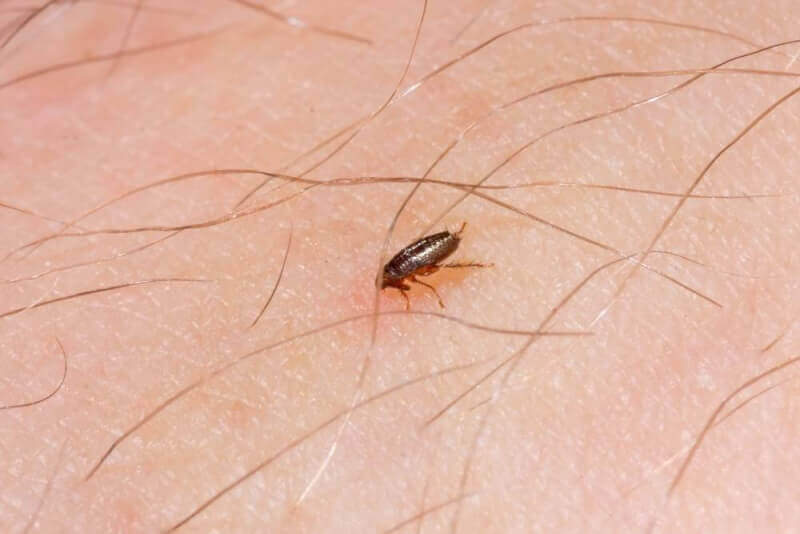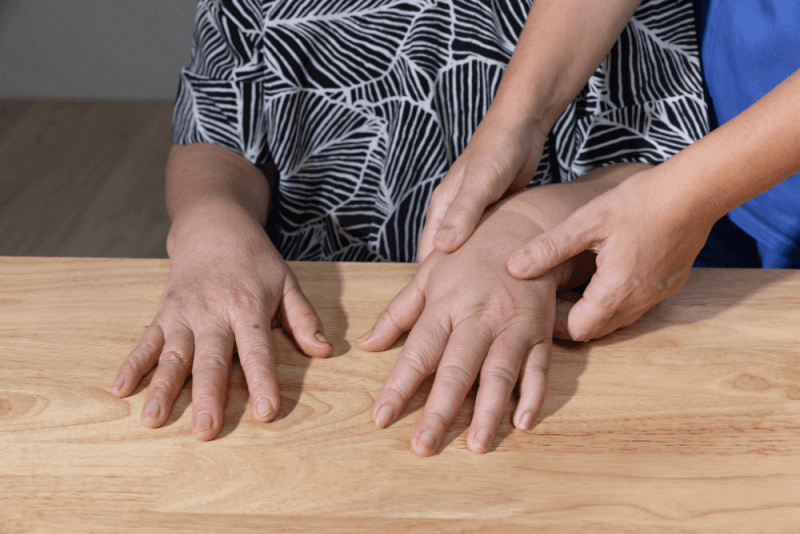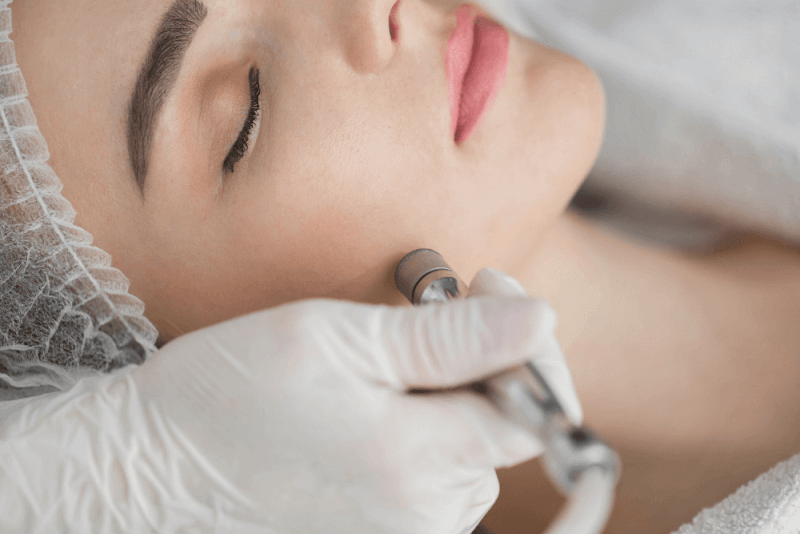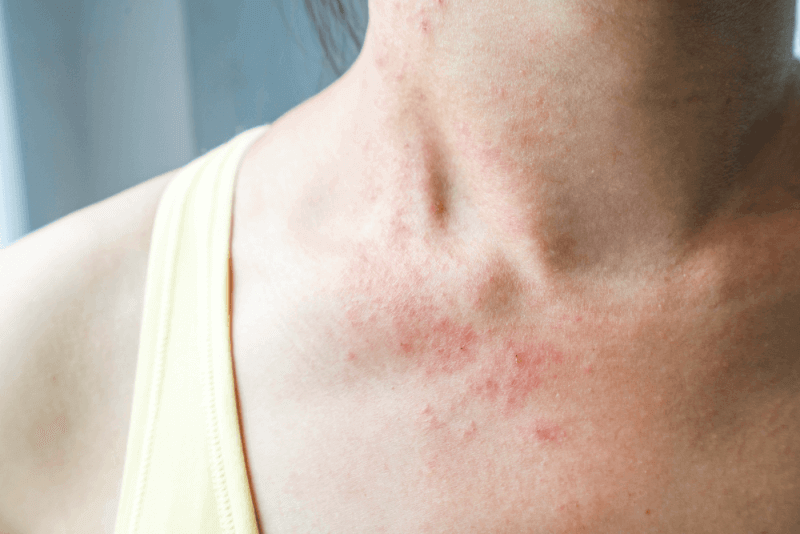People living in rural areas or keeping pets at home may have some problems due to the care of the animals. One of these is the flea bite. Fleas, which can pass from animals to humans, cause rashes and redness on the skin and reduce people's quality of life.
What is a Flea Bite?
Fleas are extremely small, wingless, brown or black, fast-breeding insects that can be transmitted from animals to humans. Fleas feed on blood and therefore bite into the skin. Symptoms such as itching, redness or rashes can also occur because fleas bite the skin to feed. The most common locations on the human body are the groin area, breast area, wrists and ankles, elbows, leg area and armpits. happens.
What Causes a Flea Bite?
Fleas cannot sustain parasitic life in humans for long. In addition, people can be exposed to flea bites, especially in rural areas where they are provided with the necessary environment for reproduction. Although parasites cannot survive in humans, they can survive and reproduce in areas such as carpets, rugs and mattresses. For this reason, if a flea bite is detected, its source must also be found.
Flea Bite Symptoms
Symptoms of flea bites are especially visible on the curved parts of the body and on the wrists and ankles. The bite sites show millimetric wheals, itching, redness and multiple lesions. Although the lesions caused by flea bites are self-limiting, other health problems attached to the lesions can cause patients to make serious complaints. Flea bites cause recurrent itching, which has a negative impact on people's quality of life.
Flea bites do not cause serious diseases in humans. In addition, fleas that do not live on people's skin for a long time cannot be transmitted from person to person due to this feature. However, flea bites cause skin integrity to break down and itch, making the skin vulnerable to bacteria. If skin infection occurs at this stage, systemic symptoms such as coughing or shortness of breath may occur in addition to swelling, edema, itching and redness on the skin.
If flea bites cause allergic reaction, the symptoms seen in people are; nausea, chest pain complaints, swelling of the face area, hives throughout the body, shortness of breath, wheezing.
The Dangers of a Flea Bite
Fleas are a type of parasite that feeds on blood. In this way, it bites the skin of both humans and animals and reaches the bloodstream. A flea needs to make 30 bite strokes to reach the blood. Open wounds are possible because flea bites disrupt skin integrity and cause itching. Open wounds become vulnerable to infections. In addition, open wounds take longer to heal. In some people, flea bites can cause allergic reactions. In these people, flea bites present a more serious clinical picture.
In addition, fleas are a type of parasite that can carry various diseases. For this reason, parasites that travel between humans and animals can transmit various diseases to both animals and humans.
How to Diagnose a Flea Bite?
A clinical examination is sufficient to diagnose a flea bite. A flea bite is diagnosed by physical examination, knowing the symptoms and feeling the lesions caused by flea bites.
Treating Flea Bites
The main point of flea bite treatment is to identify the source of the fleas and remove them from the area. For this, areas with high flea populations in their habitats should be identified and these areas should be flea-free. If the flea population is caused by domestic animals, veterinarians should be consulted to ensure that pets are free of fleas.
If flea populations are found in habitats, the use of pesticide-based cleaners helps to control them. In addition, living spaces should be regularly and well ventilated, waste that may be a source of fleas should be removed from living spaces, and items such as carpets and rugs should be cleaned.
To prevent itching of the lesions caused by flea bites, the lesions should be cleaned with soapy water and medication should be administered if necessary. If the lesions cause a severe clinical picture, the physician should determine whether there is a secondary infection or allergy and initiate the necessary treatment.
With the necessary precautions, flea bites heal between 4 and 9 days. However, if the necessary precautions are not taken, flea bites can cause infections as well as typhus, rabies and skin diseases.
How to Avoid Flea Bites?
The most effective way to avoid flea bites is to control flea populations. For this, spraying should be done regularly. Since fleas multiply rapidly, individual attempts to control the population are difficult. This requires professional spraying. In addition, pets should be regularly vaccinated against external parasites or use flea collars with flea repellent properties.
How to recognize fleas in living spaces
A vacuum cleaner can be used to check for fleas in living spaces. To do this, areas where fleas can multiply should be vacuumed. If the dust bag of the vacuum cleaner acquires the appearance of peppercorns, it can indicate the presence of fleas in living spaces. In addition, the appearance of lesions caused by flea bites is an indication that fleas are present in the living environment.
What is Good for Flea Bites?
In addition to the treatment methods used for flea bites, some traditional methods can be used to minimize burning and itching.
Cologne
The most preferred method to relieve the itching caused by flea bites is cologne. For this, it is enough to apply a few drops of cologne to the itchy area.
Ice
Cold compresses can be used to eliminate the burning sensation caused by flea bites. Wrapping the ice cubes in a cloth and then leaving it on the affected area for 5 minutes will be enough to relieve the burning sensation.
Lemon Juice
Lemon juice can be used to reduce the blisters caused by flea blisters. Other effects of lemon juice on flea bites are the prevention of infection and the relief of burning sensation.
Taking a Shower
It is recommended to shower shortly after the first bite. Rub the bitten areas with warm water and soap. Showering prevents new flea bites and prevents infections.
Raw Garlic
One of the methods that can be applied for both babies and adults is to apply raw garlic to the bitten area. Although there is a short burning sensation when the garlic first comes into contact, the burning and itching sensation caused by flea bites will disappear after waiting for a while.
Natural Oils
Mixing rosemary, lavender and tea tree oils and applying them to the affected area will also relieve the effects caused by flea bites.
Things that are not good for flea bites
If the flea bite does not cause an allergic reaction, it heals spontaneously. However, some mistakes can delay recovery or worsen the situation.
- Intervening at the site of a flea bite with any cutting or piercing instrument,
- Burning to relieve itching caused by flea bites,
- Improper scratching of the affected area,
Flea bite allergy
Usually, flea bites do not cause severe symptoms. However, serious reactions can be seen in people with allergies. These reactions include the following.
- Swelling
- Itching
- Irritation of the skin around the bite
- Agri
- Hives and rashes










